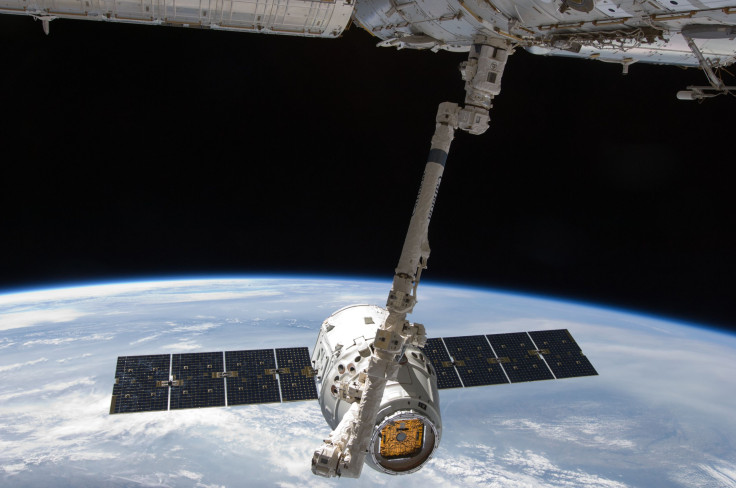OneWeb Investor Tries Forcing Elon Musk's SpaceX To Reveal Satellite Internet Plans

Not so fast, Elon. The satellite Internet provider Intelsat has asked the Federal Communications Commission to deny a proposal from SpaceX that would enable Elon Musk's private space company to test out its own satellite Internet service.
Musk has been vocal about his plan to beam the Internet to the most remote areas of the planet by surrounding the earth with 4,000-or-so low orbiting satellites. SpaceX formally asked the FCC's permission to test the plan in May. Now, though, Intelsat is calling on the FCC to block the request, saying SpaceX hasn't done enough research to be able to determine if SpaceX's satellites would interfere with its own.
“SpaceX has failed to show that it would not interfere with licensed geostationary satellites,” Intelsat general counsel Susan H. Crandall wrote in a July 9 letter to the FCC, which first began circulating after a Motherboard report. “The information that SpaceX is seeking to withhold is the kind of basic information that is routinely, and publicly, filed by other satellite operators (both GSO and NGSO) in applications seeking FCC authorizations...The information withheld is critical to any analysis of potential interference.”
But the FCC request is probably about more than technology concerns. Intelsat has a $25 million equity stake in OneWeb, the Richard Branson-led satellite Internet service that's SpaceX's primary competition. Along with the FCC request, Intelsat also filed a Freedom of Information Act request with the FCC in an attempt to find out how SpaceX plans to lower its satellite operating frequencies as they pass over the equator, a standard method of reducing interference.
© Copyright IBTimes 2025. All rights reserved.



















